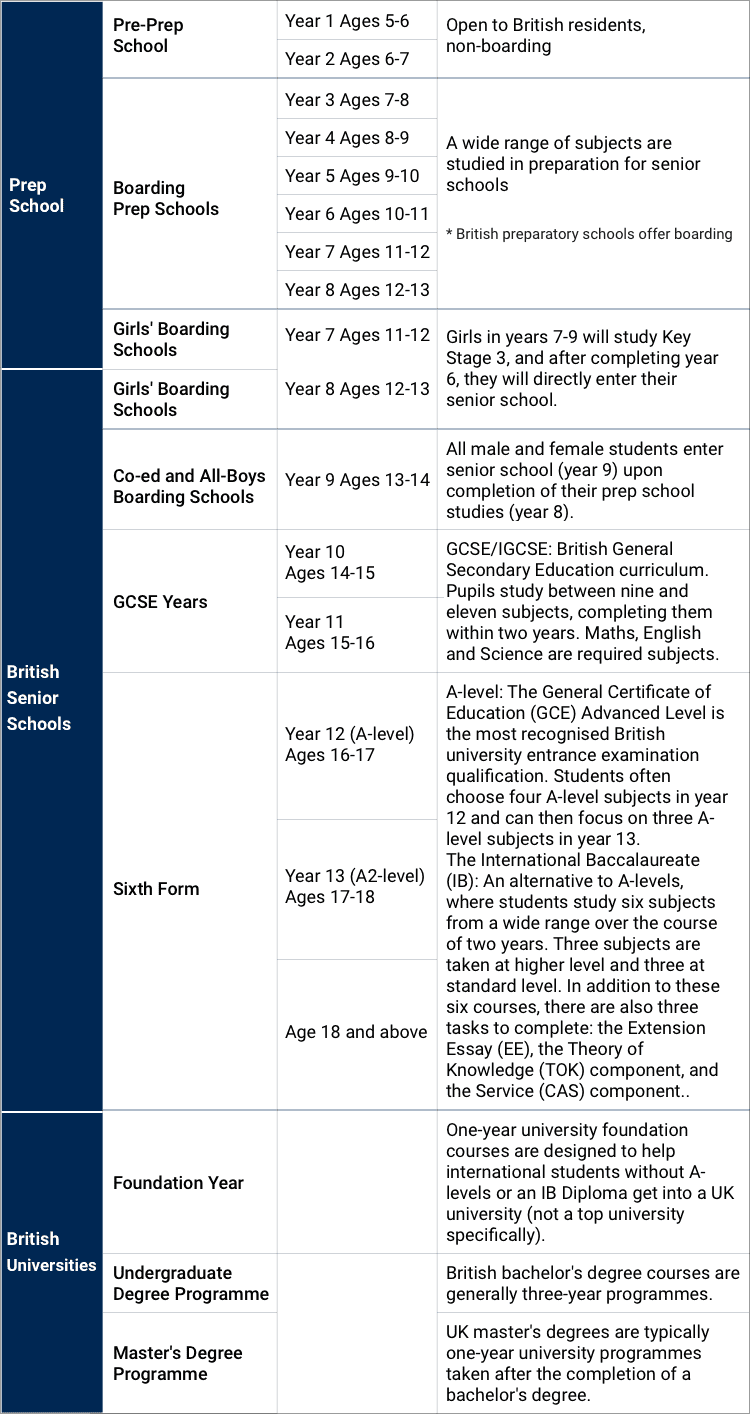
Years 7 and 8 are typically the last two years in UK preparatory schools, or the first and second year of girls’ senior schools. For prep school pupils, these years are focused on preparing for the senior school entrance exams. Year 9 is the first year of most UK independent co-ed and boys’ schools. It is therefore a transitional period from prep school to senior school, during which students meet new friends and settle into their new environment. The Year 9 curriculum covers a wide range of subjects, allowing students to identify their interests and decide which subjects to choose at GCSE.
The traditional two-year GCSE curriculum requires students to study eight to eleven subjects, and is offered by the vast majority of schools. Some schools offer IGCSE, which only requires students to study five to six subjects in one year, appealing to international students with lower English language skills.
The broad scope of the GCSE curriculum means students are able to develop a wide spectrum of knowledge whilst discovering where their strengths lie. The knowledge and skills gained provide a strong foundation for Sixth Form study. Students who study Biology at GCSE, for example, find it much easier in the Sixth Form, and the course is essential for students planning on choosing a Biology-related degree at university.
Students typically apply to university at the beginning of Year 13. As they have not completed their exams at this time, universities refer to students’ predicted grades along with their GCSE results to determine whether they have the ability to meet course requirements. As such, GCSEs are important not only for entry to senior schools, but also for university admission.


Choosing A-level subjects must be done carefully; if students are already clear about which undergraduate degree they would like to study at university, they need to take into consideration the programme requirements. For example, students who want to study medicine need to choose related A-level subjects, including Maths, Chemistry, and Biology.
Students take A-level exams at the end of the second year, and the results determine whether or not they are accepted onto their desired undergraduate programme. If students are not satisfied with their A-level results, they can choose to retake exams the following year, in May and June.
In the Sixth Form, some schools offer students the choice to study the IB Diploma Programme instead of A-levels. IB is accepted by universities around the world and has three core elements: Theory of Knowledge, in which students reflect on the nature of knowledge and on how they know what they claim to know; The Extended Essay, which is an independent, self-directed piece of research, finishing with a 4,000 word paper; and Creativity, Activity, Service (CAS), in which students complete a project related to these three concepts. Students can choose courses from six subject groups, ranging from sciences to the arts, and the programme encourages both personal and academic achievement, challenging students to excel in their studies and in their personal development.
IB students are invariably busy with their studies and consequently learn to manage their time effectively. The demands of the curriculum also require students to possess strong language skills and responsibility for their own learning. As such, the IB tends to suit students who are proactive in their learning and at an advanced level in their English.

The following chart introduces the key admission ages, entry points and curriculums for British schools.
The difficulty of content taught increases gradually, from elementary to more advanced.


